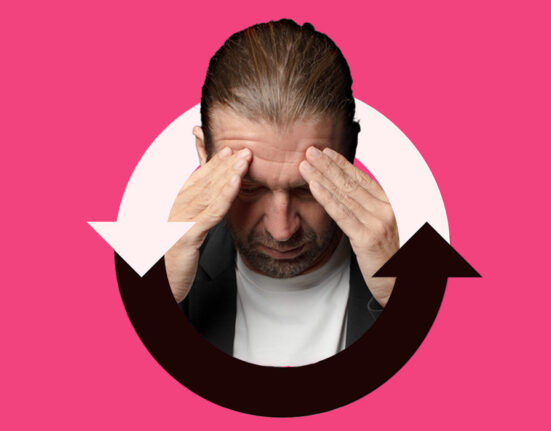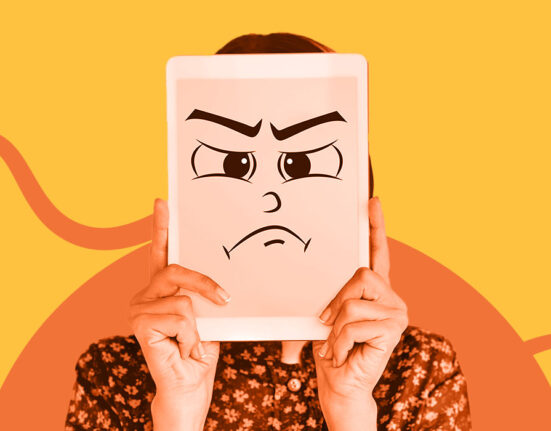Have you ever felt drained after a conversation? Maybe you spent an evening listening to a friend vent nonstop about their problems, or you found yourself facing someone who just radiates negativity. You shake it off as “I’m just tired,” but there’s more to it. Psychology calls this phenomenon emotional contagion, our moods and energy levels can be caught from others without us even realising it. Research shows that emotions “can be transferred to others via emotional contagion, which makes the other person feel or experience the same emotions without their awareness”.
In other words, when someone around you is upset or stressed, your brain picks up those signals and you start to feel them too. This isn’t spooky pseudoscience, it’s backed by studies. For example, a famous experiment on Facebook found that if people saw fewer positive posts, they posted fewer positive thoughts and more negativity themselves. In plain terms, even reading others’ happy or sad updates shifted users’ moods.
The Science Behind Emotional Drain
Our brains are wired to empathise with others. Tiny neurons called “mirror neurons” get activated when we see someone expressing their emotion, leading us to internally mirror that feeling or expressed emotion. This is great for bonding, but it means listening intensely to someone’s stress can literally tire you out. A recent psychology study found that teachers who exert more effort listening to students’ problems reported higher burnout. In other words, the more you absorb someone else’s emotional challenges, the more exhausted you can feel, especially if you feel responsible to “fix” things. The researchers noted that listening to others can be “incredibly draining” and linked to emotional burnout.
Another factor is social comparison. Psychologist Leon Festinger’s social comparison theory (1954) tells us we constantly measure ourselves against those around us. When we encounter someone who seems better off, maybe they have a cooler job, a nicer house, or endless success stories, our brains reflexively compare. Sometimes this motivates us, but often it produces negative feelings. As one summary puts it, keep an eye on “negative feelings that might emerge” from these comparisons. In practical terms, if a friend is always bragging or showing off, you might unconsciously feel inferior or jealous. Over time, comparing yourself to others can drain your emotional energy.
Finally, chronic stress from toxic relationship dynamics drains your battery. Experts find that toxic relationships often trigger constant anxiety and self-doubt. One recent article notes that such relationships commonly cause a decline in self-esteem, energy levels, and overall happiness, and it can cause emotional strain, exhaustion can result in a lack of motivation. Biologically, enduring negativity raises stress hormones and lowers our reserves. So, if someone’s presence consistently leaves you feeling anxious or down, it’s not just in your head – it’s your brain and body running low on energy.
Types of Emotionally Draining People
The Narcissist or Self-Absorbed Person
In this case, the person always needs to be the centre of attention. They brag about themselves, belittle others, or flip every conversation back to their own accomplishments. Psychologists explain that those who have strong narcissistic traits often lack empathy towards others and use manipulation or emotional blackmail tactics. In practice, we can say that conversation with them is frequently one-sided, and they don’t truly listen to you, but expect admiration, which may lead you to feel used. Interacting with someone like this can leave you wondering if you said or did the “right” thing, draining your confidence and energy.
The Energy Vampire (Chronic Complainer)
You know this type: every story they tell turns into a catastrophe, and they expect you to absorb it all. They might always be stressed, angry, or crying for attention. A “energy vampire” in pop-psych terms is someone who gets hold of your positive energy to offset their negative energy, often draining you with endless complaints. They monopolise conversations with their woes without pausing to ask how you’re doing. Even subconsciously listening to their negativity exhausts you. Over time, you leave these interactions feeling like you lost several hours of your life along with your emotional strength.
The Overachiever/Braggart
Some people are friendly, but it always feels a bit competitive. Whenever you share news, they top it: finished a 5K? They ran an ultramarathon. Bought a new gadget? They were beta-testing the prototype. This triggers upward social comparison: you measure yourself against them and often come up short. As psychologists note, comparing yourself to someone “superior to us” can easily make you feel inadequate. Sitting through these conversations chips away at your self-esteem and energy. It’s subtle, but after a while, you might find yourself cringing at every meet-up, sensing that you’ll feel “less than” afterwards.
Each of these types has a different style, but they share a trait: a lack of emotional give and take. They take more energy than they give. When you notice that your own needs are being ignored or dismissed, for instance, you’re always consoling them, but they never ask how you are, that’s a red flag.
How to Recognise the Signs
- Spending time with them often leaves you exhausted. If you feel stuffy, tired or uneasy after your time with someone, their actions might play a part. Sometimes, after a workout, you might feel drained, weary or pressured, like you’ve lifted something heavy.
- Speakers don’t give and receive memories in a conversation. Look at how one person produces new answers based on reactions from others. If you notice that, while you are always giving support, the other isn’t, that’s something to consider. Often, they focus all their attention on telling you about their problems and don’t ask you to talk about yours. Someone who studies friendships says these types of friendships drain us because our friends don’t “return the favour with support,” which may cause mental and emotional strains and, at times, physical tiredness.
- You fear or often think about any kind of interaction. Talking to this person might cause your heart to race, and you might go over how you plan to talk to them. Taking a “decompression” nap or some time for yourself right after seeing friends is one way to tell you need space. Mood changes are another symptom: you might feel unpleasant or tired for several hours after eating unhealthily. When you feel like their problems are yours and you pick up their stress, that describes the step well.
- The boundaries you set are always in danger. If the person demands your time, money and attention regularly and you start to feel uncomfortable saying ‘no,’ that’s also draining. You might end up apologising because you did something for yourself (such as taking a walk instead of replying to messages). All in all, when you put your energy into fixing things for them, you lessen the amount you can use for yourself.
Strategies to Protect Your Energy
- Set firm boundaries
- Practice self-care religiously
- Remain mindful in conversations
- Be willing to walk away when needed
Often, we feel guilty for cutting back or standing up for ourselves. But research and experts agree that constantly draining relationships lead to serious stress, anxiety, and even depression.
Conclusion
Feeling emotionally drained around certain people is a common feeling, and it is not just in your head or a personal flaw. Our brains and bodies naturally pick up on others’ emotions and stressors. Recognising the patterns and that it’s scientifically normal is the most important step. Once you know the tricks (emotional contagion, social comparison, manipulative tactics), you can shield yourself. Use the strategies above: set boundaries, say no, and prioritise supportive friendships. It will help you to preserve your mental health. Eventually, we realise that looking after our feelings helps us replenish our energy. We should remember that relationships should lift and energise us, not cause us to feel tired throughout.
FAQs
1. Why do some people leave you feeling drained?
People can drain your energy due to various factors, including their behaviours, personal challenges, or even your reactions to them. Some may be self-centred, constantly complaining, or have negative attitudes, which can be emotionally draining to interact with. Additionally, introverts can feel drained by excessive social stimulation, while some individuals may be “energy vampires” who unconsciously or consciously siphon off your energy.
2. Why do other people’s emotions drain me?
Feeling emotionally drained by others can be attributed to several factors, including being an empath, the phenomenon of emotional contagion, or the presence of energy vampires. Empaths, who are highly sensitive to the emotions of others, may absorb their feelings, leading to exhaustion. Additionally, emotional contagion, where emotions are contagious, can affect your emotional state, especially if you are around someone consistently negative. Some individuals, known as “energy vampires,” may intentionally drain your emotional energy by feeding off your willingness to care and listen.
3. How do you know if someone is pulling on your energy?
You might suspect someone is drawing on your energy if you feel drained, irritated, or emotionally overwhelmed after interacting with them, or if you find yourself avoiding them or feeling anxious about future interactions. Other signs include a strong desire to be the centre of attention, a tendency to exaggerate problems, or blaming others for their shortcomings.
4. Why You Feel Emotionally Drained Around Certain People?
Feeling emotionally drained around certain individuals can stem from various factors, including the other person’s behaviours, your own emotional sensitivity, and relationship dynamics. It can be a result of “emotional contagion,” where negativity and stress can spread from one person to another. Other reasons include the person’s codependent behaviours, jealousy, or the lack of reciprocity in your relationship. Additionally, your personality type, such as being an empath or introvert, can increase your susceptibility to feeling drained.
References +
- Festinger, L. (1954). A theory of social comparison processes. Human Relations, 7(2), 117–140. https://doi.org/10.1177/001872675400700202
- Hatfield, E., Cacioppo, J. T., & Rapson, R. L. (1994). Emotional contagion. Cambridge University Press. https://www.cambridge.org/core/books/emotional contagion/31BB43FF39498E2077E40D4EE62C8820
- Kramer, A. D. I., Guillory, J. E., & Hancock, J. T. (2014). Experimental evidence of massive-scale emotional contagion through social networks. Proceedings of the National Academy of Sciences, 111(24), 8788–8790. https://www.pnas.org/doi/10.1073/pnas.1320040111
- Maslach, C., Schaufeli, W. B., & Leiter, M. P. (2001). Job burnout. Annual Review of Psychology, 52, 397–422. https://www.annualreviews.org/doi/10.1146/annurev.psych.52.1.397
- Lancer, D. (2021, March 8). What is a toxic relationship? Psychology Today. https://www.psychologytoday.com/us/blog/addiction-and-recovery/202103/what is-a-toxic-relationship
- American Psychological Association. (n.d.). Narcissism. APA Topics. https://www.apa.org/topics/personality-disorders/narcissism













Leave feedback about this